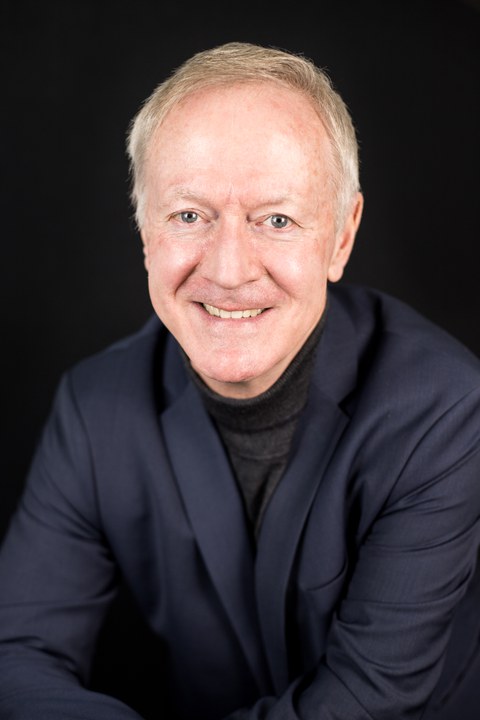Prof. Dr. phil. Jürgen Hoyer
Research focus
- Social anxiety disorder
- Generalized anxiety disorder
- Depressive disorders
- Sexual disorders
- Psychotherapy research
Inhaltsverzeichnis
Curriculum Vitae
|
Hoyer, Juergen, Dipl. Psych., PhD, Professor of Psychology |
|
|
Official position |
Chair of Behavioral Psychology, Head of TU Dresden Outpatient Clinic for Psychotherapy |
|
Institution |
TU Dresden, Faculty of Psychology, Institute of Clinical Psychology and Psychotherapy |
|
Business address |
Hohe Str. 53, D-01187 Dresden |
Academic education and degrees
|
1977-1984 |
Diploma in Psychology, University of Goettingen, Germany |
|
1992 |
PhD in psychology (Dr. phil) at Goethe University Frankfurt |
|
1999 |
Postdoctoral lecture qualification (venia legendi) in Psychology, Goethe University Frankfurt |
Professional career
|
1984-1987 |
Clinical psychologist at the Niedersächsisches Landeskrankenhaus Moringen (Forensic Psychiatric Hospital) |
|
1987-1992 |
Research Assistant, Goethe University Frankfurt |
|
1992-1999 |
Assistant Professor, Goethe University Frankfurt |
|
1999-2001 |
Assistant Professor („Oberassistent“), Technische Universität Dresden |
|
2001-2002 |
Professor at Hochschule Magdeburg-Stendal (Germany) |
|
2002-2012 |
Associate Professor and head of outpatient clinic, Technische Universität Dresden |
|
2013-present |
Full Professor of Behavioral Psychotherapy and head of outpatient clinic, Technische Universität Dresden |
Honors, awards and positions
|
2006 |
“Schönstes Lehrbuch 2006“, Stiftung Buchkunst (along with H.-U. Wittchen) |
|
2015 |
Heigl-Prize (Universität Düsseldorf ) for the „Sophonet research network“ (Co-Founder: J. Hoyer) |
|
2017 |
Scientific Paper Award 2017 of the American Psychoanalytic Association (along with C. Steiner, S. Rabung, T. Munder, F. Leichsenring) |
|
Since 2013 |
Speaker of a Germany-wide research network of university-bound outpatient clinics (Forschungsverbund Koordination der Datenerhebung und -auswertung an Forschungs-, Lehr- und Ausbildungsambulanzen für Psychotherapie KODAP |
Current journal editorial positions
|
Since 2013 |
Advisory editor, Psychotherapy research |
|
Since 2015 |
Co-editor and editor (2019/2020) Zeitschrift für Sexualforschung |
|
Editorial board |
Diagnostica, Psychotherapie im Dialog |
10 most important peer-reviewed papers
(10 out of 207, Scopus H-index: 34)
Hoyer J, Becker ES, Margraf J. Generalized anxiety disorder and clinical worry episodes in young women. Psychological Medicine. 2002;32:1227-37.
Hoyer J, Becker ES, Roth WT. Characteristics of worry in GAD patients, social phobics, and controls. Depression and Anxiety. 2001;13:89-96.
Wittchen H-U, Kessler RC, Beesdo K, Krause P, Höfler M, Hoyer J. Generalized anxiety and depression in primary care: Prevalence, recognition and management. Journal of Clinical Psychiatry. 2002;63:24-34.
Hoyer J, Eifert GH, Einsle F, Zimmermann K, Krauss S et al. Heart-focused anxiety before and after cardiac surgery. Journal of Psychosomatic Research. 2008;64:291-7.
Hoyer J, Beesdo K, Gloster AT, Runge J, Höfler M, Becker ES. Worry exposure versus applied relaxation in the treatment of generalized anxiety disorder. Psychotherapy and Psychosomatics. 2009;78:106-15.
Hoyer J, Bräuer D, Crawcour S, Klumbies E, Kirschbaum C. Depersonalisation/derealisation during acute social stress in social phobia. Journal of Anxiety Disorders. 2013;27:178-87.
Hoyer J, Wiltink J, Hiller W, Leibing E, Miller R et al. Baseline patient characteristics predicting outcome and attrition in cognitive therapy for social phobia: Results from a large multicentre trial. Clinical Psychology & Psychotherapy. 2016;23:35-46.
Hoyer J, Čolić J, Pittig A, Crawcour S, Moeser M et al. Manualized cognitive therapy versus cognitive-behavioral treatment-as-usual for social anxiety disorder in routine practice: A cluster-randomized controlled trial. Behaviour Research and Therapy. 2017;95:87-98.
Hoyer J, Čolić J, Grübler G, Gloster AT. Valued living before and after CBT. Journal of Contemporary Psychotherapy. 2020;50; 37-45.
Hoyer J, Hoefler M, Wuellhorst V. Activity and subsequent depression levels: a causal analysis of behavioural activation group treatment with weekly assessments over 8 weeks. Clinical Psychology & Psychotherapy. 2020;27(3):330-6.

